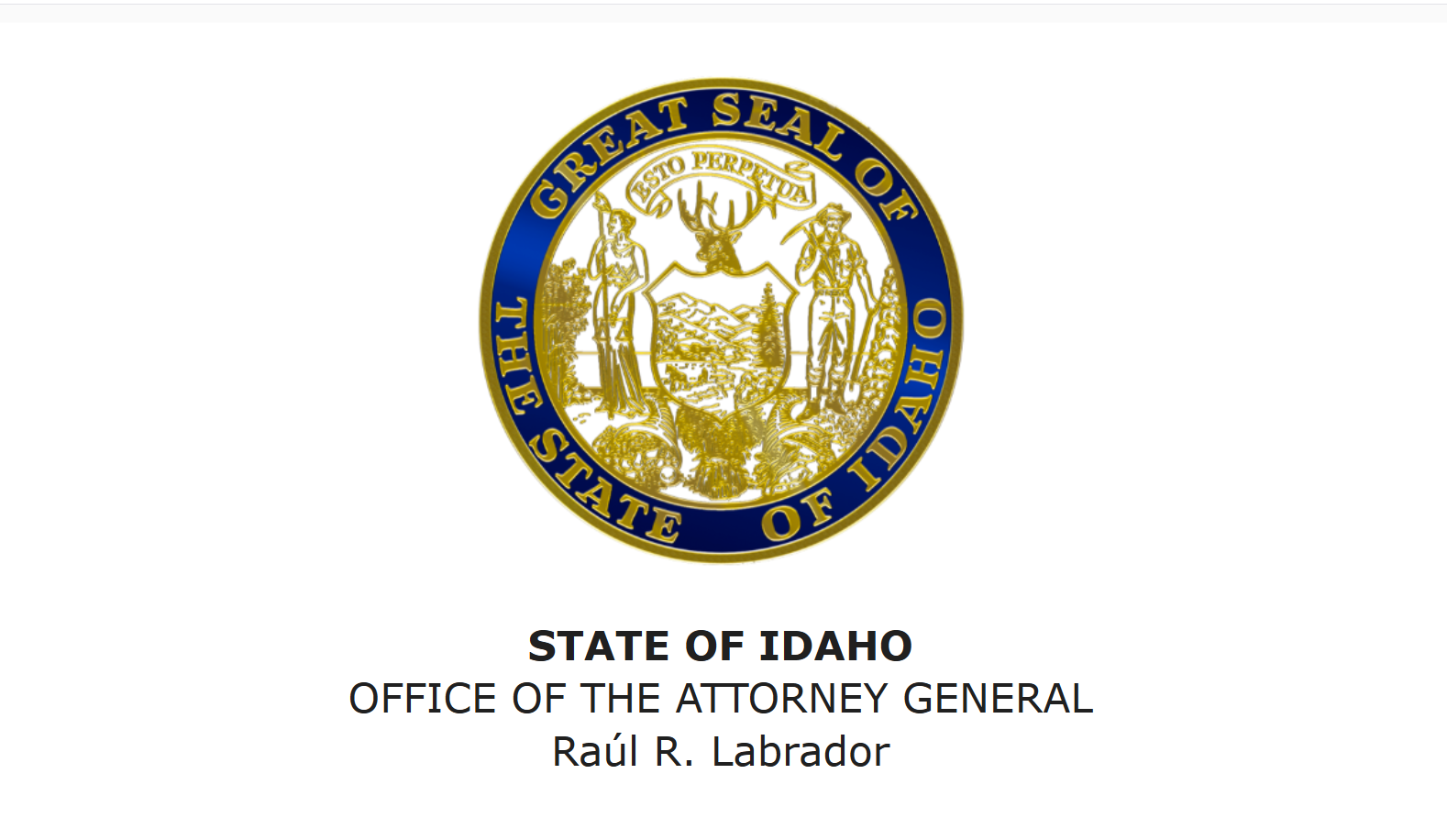After five years of work, the Defend the Guard Act passes the Idaho Senate with strong support.
Guest Opinion
By Brian Almon of Ada County
Editor’s Note – On March 4, 2024, the Idaho Senate passed S1252, the Defend the Guard Act, with a 28-7 vote. At the time of this publication, the bill rests in a house committee. The statement of purpose says, “The men and women in the Idaho National Guard must not be called into active duty combat operations on foreign soil unless there has been a congressional declaration of war.”
BOISE, IDAHO – Idaho’s own Dan McKnight is the founder of Bring Our Troops Home, an organization dedicated to ending the constant state of war that our country is in today. In his office sits a bust of Major General Smedley Butler, one of the most decorated Marines in history, and one of only a handful of men to be awarded two Medals of Honor.
Despite, or perhaps because of, his battlefield heroism, General Butler wrote a pamphlet in 1935 titled War is a Racket. His writing describes how the American people are continually hoodwinked into supporting wars that are not in the best interest of the citizens, but rather for the wealthy and powerful interests that control our country.

General Butler died in 1940, just before America joined the most destructive conflict in human history. Yet his words live on today, and he has been proven right over and over again.
The United States of America has been at war for a long time. It is hard to believe that prior to World War II our standing army was small, and our overseas deployments were few. Our first steps toward empire occurred at the turn of the twentieth century when we annexed Hawaii, seized the Philippines and Guam, and established a naval base in newly independent Cuba.
However, after World War II we embraced the role of superpower. We left huge garrisons in the defeated nations of Japan, Germany, and Italy. We went abroad to defend the free world from Soviet aggression. In the eight decades since, we have continued to expand our operations across the globe.
The last time the United States of America formally declared war on a foreign power was on June 5, 1942, in the midst of World War II. It is ironic that the US has engaged in more conflict since that date than before.
Roughly 35,000 Americans died to preserve the status quo in Korea, while 50,000 more died to delay the communist takeover of Vietnam. In neither case did Congress declare war. Instead, they were content to fund military action directed by the president and the Pentagon.
Perhaps these interventions were necessary at the time to counter communist expansion. Despite the Cold War ending in 1991, we did not return to the old ways. The President of the United States continued to deploy our military – often unilaterally – into combat throughout the world. Saudi Arabia, Iraq, Somalia, Serbia, Bosnia, Afghanistan, Syria, Yemen, Libya, and many other countries have hosted our armed forces over the past thirty years – some willingly, and some not.
Before World War II, foreign deployments were extremely rare. It was an extraordinary thing to send American troops abroad, whether to fight or just to show the flag. Today, spending six months or more in Kuwait, Japan, or South Korea is simply to be expected. These bases are outposts of the American Empire.
Dan McKnight saw America’s transformation into empire. A veteran of both the US Marine Corps and the US Army, McKnight enlisted in the Idaho National Guard after 9/11. While deployed to Afghanistan to support the 82nd Airborne and 10th Mountain Divisions, McKnight saw his battalion was ill-equipped. Rather than complain, he decided to do something about it. Using a satellite phone, he spoke to then-Governor Jim Risch, explaining the situation. The governor, McKnight reasoned, was the Commander-in-Chief of the Idaho National Guard, and should be able to fix the problem.
Just a few days later, the supply problem was solved, and McKnight’s commanding officer confiscated the satellite phone.
The American adventure in Afghanistan began as a response to the terror attacks of September 11, 2001. Our initial war aim was to capture or kill the terrorists responsible for the attacks as well as anyone who harbored them. The first weeks of the campaign looked like an extraordinary success, on par with Operation Desert Storm in 1991. Unfortunately, once Osama bin Laden escaped the siege of the Tora Bora, our leaders lost focus. The Bush Administration was already looking toward our upcoming invasion of Iraq, so Afghanistan was put on the back burner.
For the men on the ground, however, there was still a job to be done, but that job kept changing. At first it was “kill the terrorists.” Then it was “build a new nation.” Then, when things went bad, it turned into a counter-insurgency operation. McKnight came home after eighteen months in the Hindu Kush feeling like he had not accomplished anything that mattered. He felt demoralized and angry.
It was only when McKnight read Scott Horton’s book Fool’s Errand that his anger turned to activism. He began to question the status quo regarding America’s constant war. He reached out to some local elected officials and political students at Boise State University and hosted a bipartisan discussion about the role of the American government with regards to war. It was an unexpected success. A standing room only crowd packed the Boise library, and a video of the discussion was shared across social media. Citizens from across the country began calling McKnight to ask how they could support his work.

Thus, Bring Our Troops Home was born. Their initial mission was to convince now Senator Jim Risch to use his influence as Chairman of the Senate Foreign Relations Committee to stop the ongoing war in Afghanistan. Despite agreeing with the group’s aims, Senator Risch continued to rubber stamp bills to support and fund the wars. McKnight gathered veterans from forty-three states to go to Washington DC to speak directly with their representatives.
The results were disappointing to say the least. Most of the congressmen and senators that met with the group gave tepid and non-committal answers. Representative Liz Cheney of Wyoming said flat out that we would never leave Afghanistan. McKnight then turned to the one man in Washington who might be able to help, Senator Rand Paul of Kentucky.
Senator Paul sympathized with the goal of ending our endless wars. Like his father, former Congressman Ron Paul, the senator had done what he could, but he was just one man against the powerful military industrial complex. He suggested that McKnight and his friends redirect their energy to the states. But what could the states do to stop foreign wars? According to the Constitution, the power to declare war and engage in international diplomacy rests entirely with the Congress and the president.
Remember though, that McKnight had been deployed to Afghanistan not as a member of the US Marine Corps or the US Army, but with the Idaho National Guard. What was our state militia doing fighting halfway around the world?

The current system of state-level national guard units was established with the National Defense Act of 1916. This law organized state militias into a uniform fighting force with three tasks: enforce the laws of the United States, put down insurrection, and repel invasion. Which of those three missions was McKnight’s unit pursuing in the mountains of Afghanistan? Invading two countries in three years had spread our regular troops thin, and they needed reinforcements. “They couldn’t maintain the pace of the mission,” McKnight said. “They had no choice but to take the national guard.”
Thus, the Defend the Guard Act was born. Pat McGeehan of West Virginia submitted a bill to his House of Delegates that would prohibit the federal government from deploying national guard units without a congressional declaration of war. McKnight and his colleagues with Bring Our Troops Home set out to introduce that same bill in every state legislature in America.
In 2020, they had sponsors in seven states. The following year, they were in thirty. In 2022, legislators in forty-three states introduced versions of the Defend the Guard Act. Several state Republican Party organizations have passed resolutions endorsing the bill, and Republicans in both Georgia and Texas have officially adopted it into their party platforms. Prominent Republican representatives such as Thomas Massie of Kentucky, Matt Gaetz of Florida, and Marjorie Taylor Greene of Georgia have endorsed the bill. “We use national attention to drive local action,” McKnight said.
Pushing this bill through state legislatures requires getting the right representatives in place. To that end, McKnight has become very active in Treasure Valley politics. Political activism was nothing new – Dan’s father spent many years fighting to make Idaho a right-to-work state, finally succeeding in 1985 after replacing twenty-three legislators who were standing in the way. McKnight campaigned for Ben Adams, a fellow veteran of the war in Afghanistan, helping him win a crowded primary in Idaho’s13th Legislative District. Seeing such success, legislative candidates throughout the state have sought McKnight’s assistance for their own campaigns. “I had this fire to build an alliance of freedom and liberty loving legislators,” he said. In 2021, the Idaho Republican Party named McKnight their Volunteer of the Year.
The political establishment in Idaho has fought this bill in pervious sessions, perhaps because the idea of returning to the Constitution is simply too radical for them to countenance. When Representative Adams introduced the measure before the Idaho House Transportation and Defense Committee in 2022, Chairman Joe Palmer called for a voice vote, and despite a clear majority in favor, declared the bill failed and gaveled out. Two years later, the Defend the Guard legislation originated in the Idaho Senate and passed overwhelmingly.
With Russia’s invasion of Ukraine, American soldiers could face combat in the near future. The Biden Administration deployed additional units to Germany and Poland after the incursion, and there are many voices in our government calling for direct action against Russia. Yet those decisions were never meant to be made by bureaucrats. Our Constitution is clear – it is the responsibility of our representatives in Congress to decide if a conflict is worth risking American lives. If it is so imperative for us to engage in battle, then Congress must have a debate, take a vote, and issue a formal declaration of war, as they did against Spain in 1898, against Germany in 1917, and against Japan in 1941. That is what our founders intended, and that is what our highest law mandates.
The Defend the Guard Act is a great step toward returning to constitutional governance, which makes it a solidly conservative position. McKnight sees a principled anti-war movement growing on the right. “The anti-war movement is the America First crowd,” he said. “Maybe it took someone as brash and controversial as Trump to point it out to us.” Every day, more and more conservatives are waking up to the fact that these endless wars are not being fought for the American people, but for a world order that benefits globalist elites to the detriment of all common people.
Changing the federal government is a tall order. The House, the Senate, and the vast bureaucracies in the executive branch and the Pentagon are all invested in continuing these conflicts forever. Convincing the states to exercise authority over their own national guard units is not only more straightforward, but much more beneficial in the long run. This is the battle that McKnight has chosen to fight, and it is one that all of us should get behind.
Major General Smedley Butler would surely approve.
Brian Almon originally published this op-ed on his Gem State Chronicle Substack channel.







